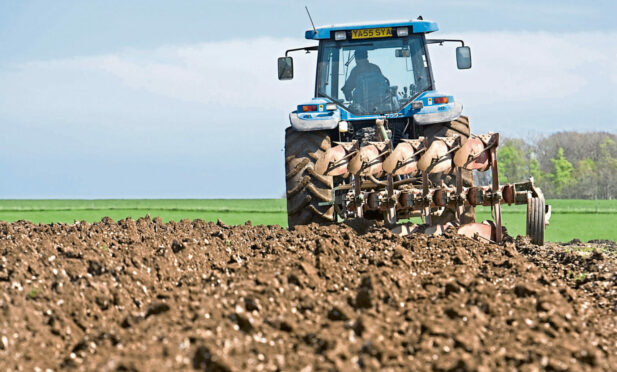Despite concern over food security, the European Commission is pressing on with new rules around nature restoration.
It insists this policy to improve biodiversity can co-exist with a commitment to food production and food security.
The environment commissioner has warned Brussels can no longer allow the war in Ukraine or concerns about food supplies to delay progress on a key element in greening the CAP and European agriculture.
The commission has confirmed its plans are legally in line with the CAP.
In the European parliament there has been a call for animal conservation status to be changed as wild populations recover.
This reflects claims that wolves and other large carnivores kill thousands of farm animals each year.
MEPs want a change to protection status legislation for wolves in particular and to ensure it reflects a balance between population numbers and the threat large carnivores pose to livestock.
We're thrilled to announce a €380 million investment from the @EU_Commission!
168 new #LIFEprojects to back the #EUGreenDeal's objectives & to build stronger solutions #ForNature & #ClimateAction.
Discover our new heroes 👉 https://t.co/AYrYnY4Y7J#LIFEprogramme #LIFEis30 pic.twitter.com/5cFBmL4qXQ
— LIFE Programme (@LIFEprogramme) November 23, 2022
The commission has confirmed it will take long and short-term action to protect fertiliser availability and affordability.
It was responding to calls from farm ministers who called for funds to be made available by the EU from sources outside the CAP to help protect farmers from rising input costs.
However, the debate however remains focused on practical measures and green aspirations to move away from chemical fertilisers and reduce fertiliser waste.
Ministers say the problem must be tackled with more practical and immediate steps.
Brussels is also pressing for a reduced reliance on imports, but again after years of dependence on Russia that is a long-term answer to a problem that is here and now.
Meanwhile the European Commission is moving towards measures that would control the rise in gas prices over the winter.
This could help ease the problem of more than half of fertiliser production being closed down because it is uneconomic at present energy prices.
School food schemes
A report on the EU school milk, fruit and vegetable schemes has shown that while these have succeeded in attracting more participants they remain focused on younger children.
While the scheme is open to schools from nursery to secondary schools, over 70% of the uptake is in primary schools and children from six to 10.
The report also shows uptake suffered badly during Covid and lockdowns, when many schools were closed, meaning the schemes could not operate effectively.
The UK government has dismissed speculation that in an effort to improve relations with the EU it may accept a Swiss-style arrangement to allow free trade in food.
This would involve accepting EU rules and standards, which the government says would limit the scope of Brexit.
This is more a political decision than one based on logic, given that the UK already meets or exceeds EU standards and has no plans to change this or roll back its green ambitions.
It has shown it is not willing to give farmers the freedom from regulations promised in 2016 by those campaigning for a no vote in the referendum.
This leaves London seeking to smooth relations with Brussels after the Johnson era, but with no plans for change and in the face of an EU increasingly disinterested in finding a solution to what it views as a self-inflicted problem in the UK.


Conversation